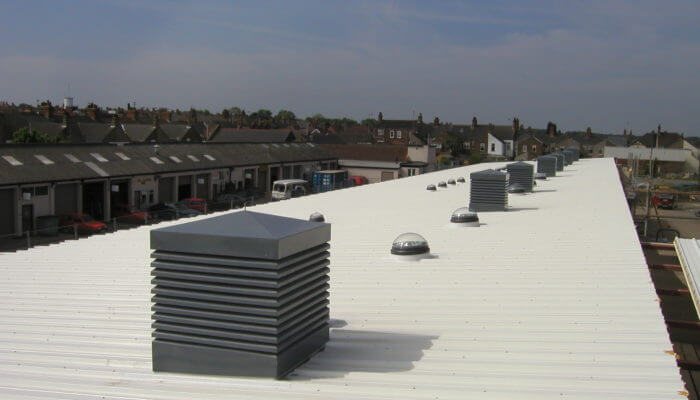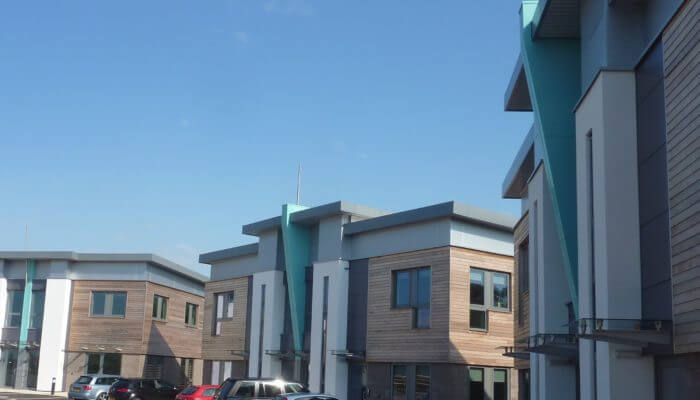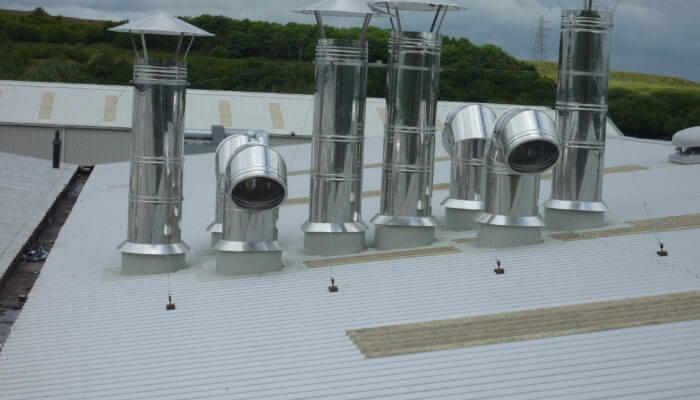The increase in specification of modular buildings is driven by the construction efficiency and quality it promises. Effective weatherproofing is a crucial steppingstone to achieving the efficiencies modular buildings set out to deliver.
The need for additional housing, schools, hospitals, and improved infrastructure is increasing across the UK. This need has resulted in pressure to speed up project delivery and reduce the cost of construction to cope with demand. This is intensifying project scheduling and straining the supply chain whilst performance targets for buildings are becoming more stringent.
The impending changes to Part L and Part F, as part of the Future Homes Standard, reflect Government plans to improve the energy efficiency of buildings to reduce primary energy demands and lower carbon emissions, with the overall aim to decarbonise the grid by 2050. Effective weatherproofing has a huge role to play, as it is a prerequisite for a well-performing building envelope.
Modular buildings and a net-zero future
There is an obvious need to increase the energy efficiency of our buildings to combat climate change and deliver zero carbon buildings of the future. The focus of the construction industry is shifting towards the use of more sustainable methods and materials in order to reduce the carbon footprint further. New UK legislation also sets compliance targets for the design of healthy buildings. Provisions for sufficient fresh air and daylight [EN17037] for the occupants are especially important for both wellbeing and performance of occupants. In the ever-changing landscape of construction, the industry now finds itself in a position where traditional construction methods simply cannot deliver projects matching all performance markers.
The call to revolutionise the ‘underachieving’ construction industry was at the heart of the Egan report, summarised as: “..the Task Force wishes to emphasise that we are not inviting UK construction to look at what it does already and do it better: we are asking the industry and Government to join with major clients to do it entirely differently” [Rethinking Construction, 1998].
The notion of revolutionising construction is at the heart of the Construction 2025 document produced by the Government in collaboration with industry. The report sets out a vision for the future of UK construction:
- A 33% reduction in both the initial cost of construction and the whole-life cost of assets
- A 50% reduction in the overall time from inception to completion for new build and refurbished assets
- A 50% reduction in greenhouse gas emissions in the built environment
- A 50% reduction in the trade gap between total exports and total imports for construction products and materials
A failure to follow through with these changes would further jeopardise our path to a low-carbon future.
What steps have been taken so far?
The modular approach to construction is not a completely new approach. We have seen previous attempts in the 1950s through to the 1970s, but a lack of supply chain stability and the perceived temporary nature and reduced life expectancy meant uptake was slow. More recently, we saw a more widespread deployment of BIM modelling to streamline design and provide a blueprint for a more efficient construction phase. Although improvements have been made, these are incremental and do not satisfy the objectives of the report. A completely new approach was required and contractors and clients in the UK are now getting to grips with MMC with a focus on off-site fabrication and modular methodologies.
Jones Weatherproofing have been at the forefront of innovation for over 40-years and are well positioned to take on the challenges of MMC. Our recent involvement in large modular projects across a variety of sectors has demonstrated that early involvement of a weatherproofing expert is crucial to realising the benefits of modular methodology for any project.
Our whitepaper ‘Streamlining weatherproofing in modular construction’ focuses closely on the role of modular buildings and how effective weatherproofing is helping to improve the efficiency of our buildings to deliver net-zero carbon by 2050. If you would like to find out how effective and flexible weatherproofing can help improve the energy efficiency of your project without impact on your scheduling, contact one of our industry experts.


